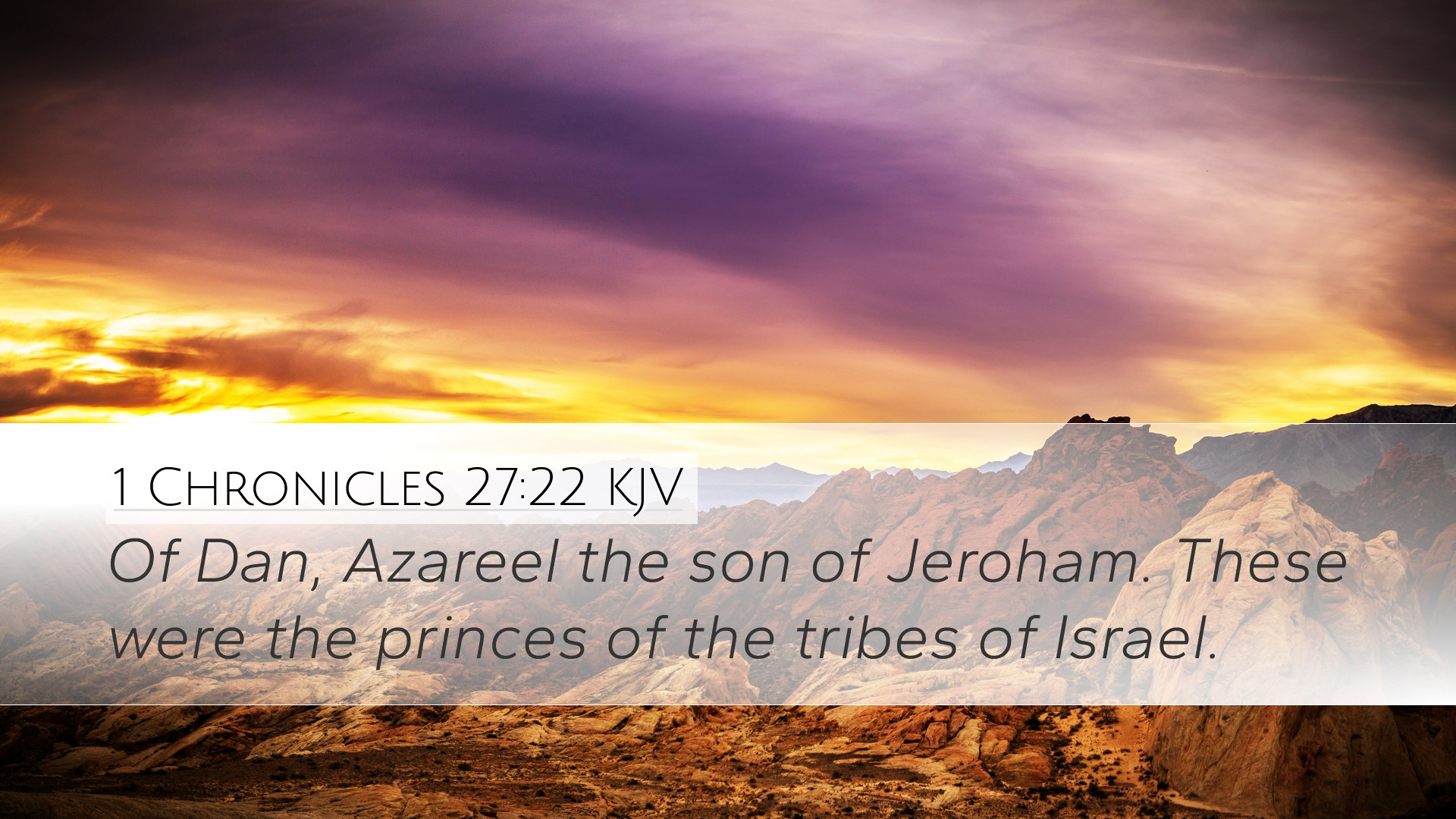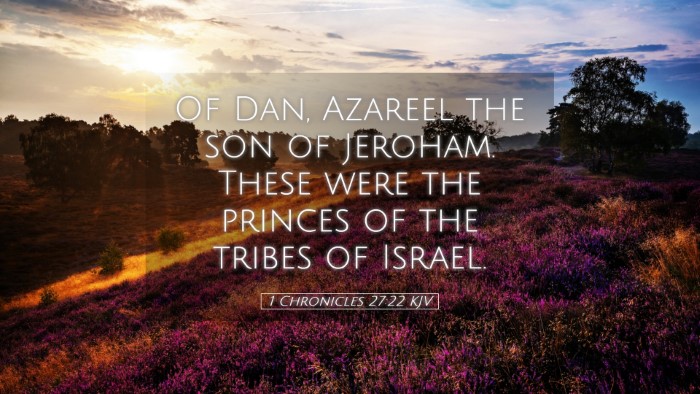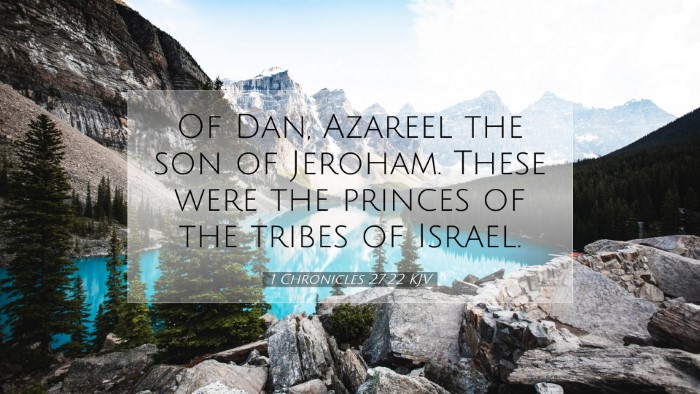Commentary on 1 Chronicles 27:22
Bible Verse: 1 Chronicles 27:22 - "Of the children of Ephraim, Hoshea the son of Azaziah." (KJV)
Introduction
The book of Chronicles is central to understanding the history of Israel and Judah, focusing significantly on the Davidic lineage and the organization of the kingdom. In this section, we see a detailed account of military leaders and their respective clans. 1 Chronicles 27:22 introduces us to Hoshea, a descendant of Ephraim, indicating his importance in the governance and military structure of David's reign.
Insights from Commentaries
-
Matthew Henry's Commentary
Matthew Henry emphasizes the significance of each tribe, particularly Ephraim, known for its stature and place among the tribes of Israel. He points out that Hoshea, though mentioned briefly, reflects the divine order in the appointment of leaders, showcasing God's favor upon Ephraim. The mention of Hoshea may remind us of the importance of each tribe's contribution to the kingdom.
-
Albert Barnes' Notes
Barnes elaborates on the position of Ephraim among the tribes. He highlights that Hoshea's lineage influenced his leadership role and denotes a connection to the northern tribes’ history. His thoughts reflect on how this verse links the present governance to the historical roles these tribes played in the conquest and settlement of Canaan. He raises the argument that, while brief, such listings serve to affirm God’s providence and structure within Israel.
-
Adam Clarke's Commentary
Clarke provides an intricate analysis of the name 'Hoshea,' which means 'salvation.' He reflects on the implications of being a leader noted by lineage, heritage, and divine choice in the context of Israel's history. Clarke also integrates the significance of military leaders and their roles in protecting Israel, portraying leadership as a responsibility bestowed from God. Furthermore, he draws attention to the intertribal relationships that Hoshea's position exemplifies.
Theological Implications
This verse underscores the importance of divine appointment in leadership. Each individual mentioned in these records is not merely a name but represents a specific role within God's plan. In an ecclesiastical context, this affirms that leaders are chosen and positioned by God's will, thus reiterating the Bible's emphasis on divine sovereignty in human affairs.
Furthermore, the mention of Hoshea also prompts reflection on the community aspect of leadership. Ephraim, being a prominent tribe, signifies the collective identity of Israel, where leaders emerge not just as individuals but as representatives of their peoples. This communal aspect highlights the need for unity and the significance of shared identity in the church today.
Historical Context
Understanding the historical backdrop is crucial in interpreting this verse. The Chronicles were written post-exilic, aiming to offer hope and reiterate God’s faithfulness to Israel. The careful recording of names like Hoshea connects the present community with their storied past, fortifying their identity and purpose in God's plan.
This chapter also serves to remind readers of the military organization that was crucial in the survival of the nation during David's reign. The structure of the tribes into military divisions indicates both preparation for conflict and the collective efforts needed to sustain the monarchy.
Application for Today
For modern-day pastors, theologians, and students of the Bible, the themes present in 1 Chronicles 27:22 present ample material for reflection and application:
-
Divine Leadership:
Recognizing that leaders are divinely appointed can guide pastoral mentorship and congregational support for their leaders, fostering an environment of prayer and encouragement.
-
Community Identity:
Just as Ephraim’s lineage provided a shared history, church communities today must cultivate their identity as a body of believers, grounded in scripture and collective mission.
-
Preparedness:
The mention of military organization inspires contemporary believers to be spiritually prepared for the challenges they face, while uniting with their community in active service and worship.
Conclusion
1 Chronicles 27:22 serves as a pivotal reminder of God’s sovereignty in leadership and the importance of collective identity within the body of Christ. The insights drawn from public domain commentaries enhance our understanding of the historical, theological, and practical applications of the text, encouraging readers to derive meaning and purpose from their place in the unfolding story of God’s people.


